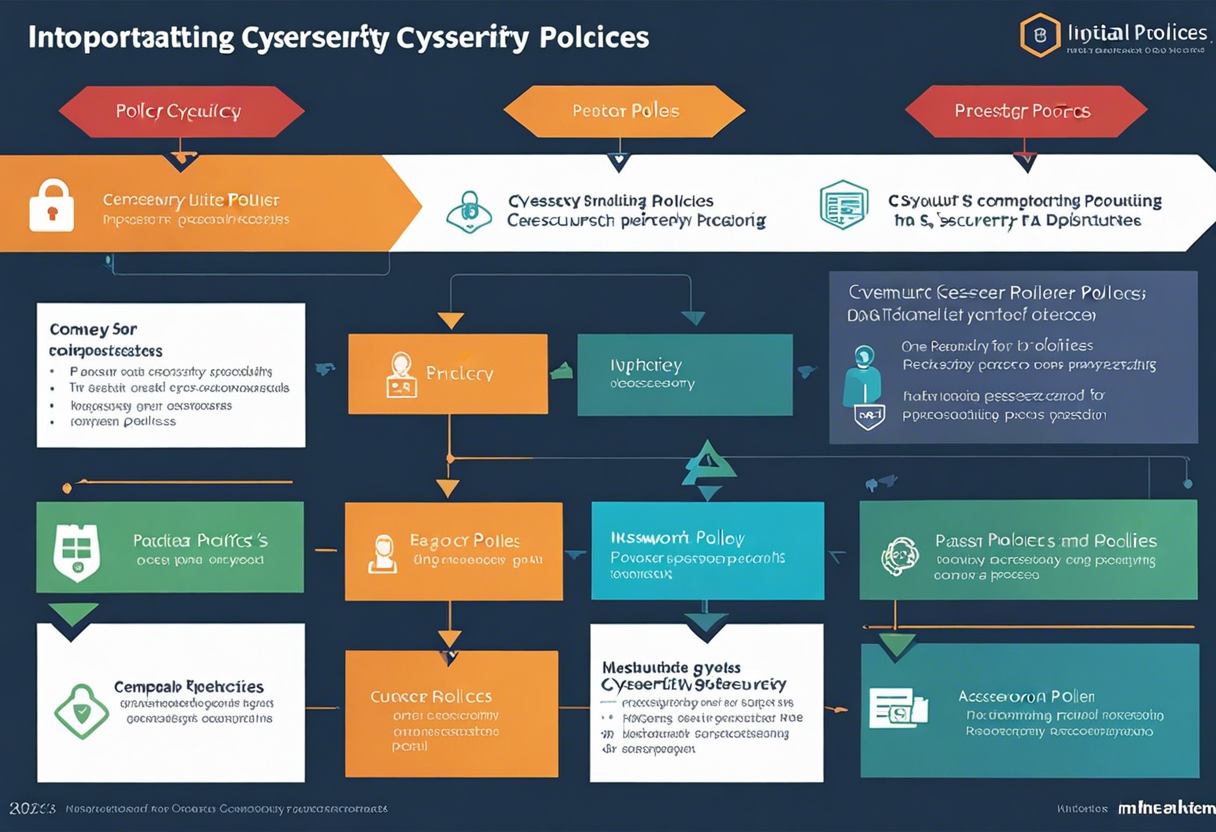Fortifying Small Businesses: Top Three Cyber Security Strategies in Focus
The journey to fortifying a small business against cyber threats starts from within. The most formidable firewall or the most sophisticated encryption protocols won't help if your employees click on malicious links or use weak passwords. Therefore, fostering a strong culture of cybersecurity in your workplace is your first line of defense.
This culture begins with proper and continuous training. Employees need to understand the importance of cybersecurity, the types of threats, and how their actions can mitigate risks. To keep this awareness fresh, regular reminders or updates about cyber threats and safety practices are vital.
Simulated phishing exercises can also be instrumental in educating your staff. By experiencing firsthand how a cyber-attack can unfold, your staff will likely be more cautious with suspicious emails or requests.
Benchmarking the organization's cybersecurity maturity against industry standards, like the National Institute of Standards and Technology (NIST) Cybersecurity Framework, is another useful strategy. This self-assessment can uncover weaknesses in the company's defenses and provide guidance on the path to improvement.
Securing the Tech Infrastructure

The next step in protecting your small business is securing the technical infrastructure. This can be achieved through several strategies.
Firstly, businesses should ensure that they have secure broadband connections. More than ever, today's businesses depend on internet connections. If these connections are not secure, they serve as open doors for cybercriminals to infiltrate your systems.
Keeping software and hardware up to date is also critical. As new vulnerabilities are discovered, software and hardware manufacturers issue updates to fix them. Neglecting these updates leaves your systems exposed to known threats.
Implementing access control is another important measure. Not every employee needs access to all company data. By limiting access to sensitive data, you can minimize the potential damage of an attack.
Lastly, businesses should encrypt data, especially sensitive customer data. If a breach does occur, the encryption makes the stolen data useless to the cybercriminals.
Incorporating Cybersecurity Policies

Instituting robust cybersecurity policies adds another layer of protection. These policies set the ground rules for using, protecting, and accessing the company's digital resources.
One such policy is the password policy. This mandates the use of strong, unique passwords and regular updates to them. Two-factor authentication can also be required for extra security.
Another important policy is the incident response plan. Despite your best efforts, a cyber attack may still occur. When it does, every second matters. A well-drafted incident response plan will outline the steps to take immediately after detecting a breach.
Data backup policies are also crucial. Regular, secure backups can ensure business continuity even after an attack. This policy should define what data to back up, when and how to do it, and how often to test the backups.
Seeking External Help

Lastly, there's no shame in asking for help. Cybersecurity is complex and rapidly evolving. An external cybersecurity service provider can provide up-to-date expertise and an objective perspective.
These providers can conduct regular vulnerability assessments and penetration testing. These tests mimic the tactics of cybercriminals to find weak spots in your defenses. Once found, these vulnerabilities can be addressed before they are exploited.
Managed services are another valuable resource. These providers can handle the day-to-day tasks such as network monitoring and maintenance, freeing up staff to focus on their job functions.
Finally, in the event of a breach, a cybersecurity firm can help mitigate the damage and recover faster. They can identify the source of the breach, take corrective measures and guide the data recovery process.
In conclusion, fortifying a small business against cyber threats is multi-faceted. It requires a strong internal culture, secure technical infrastructure, robust policies, and sometimes, a little help.